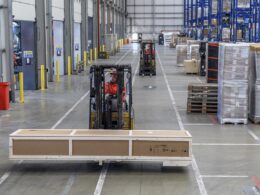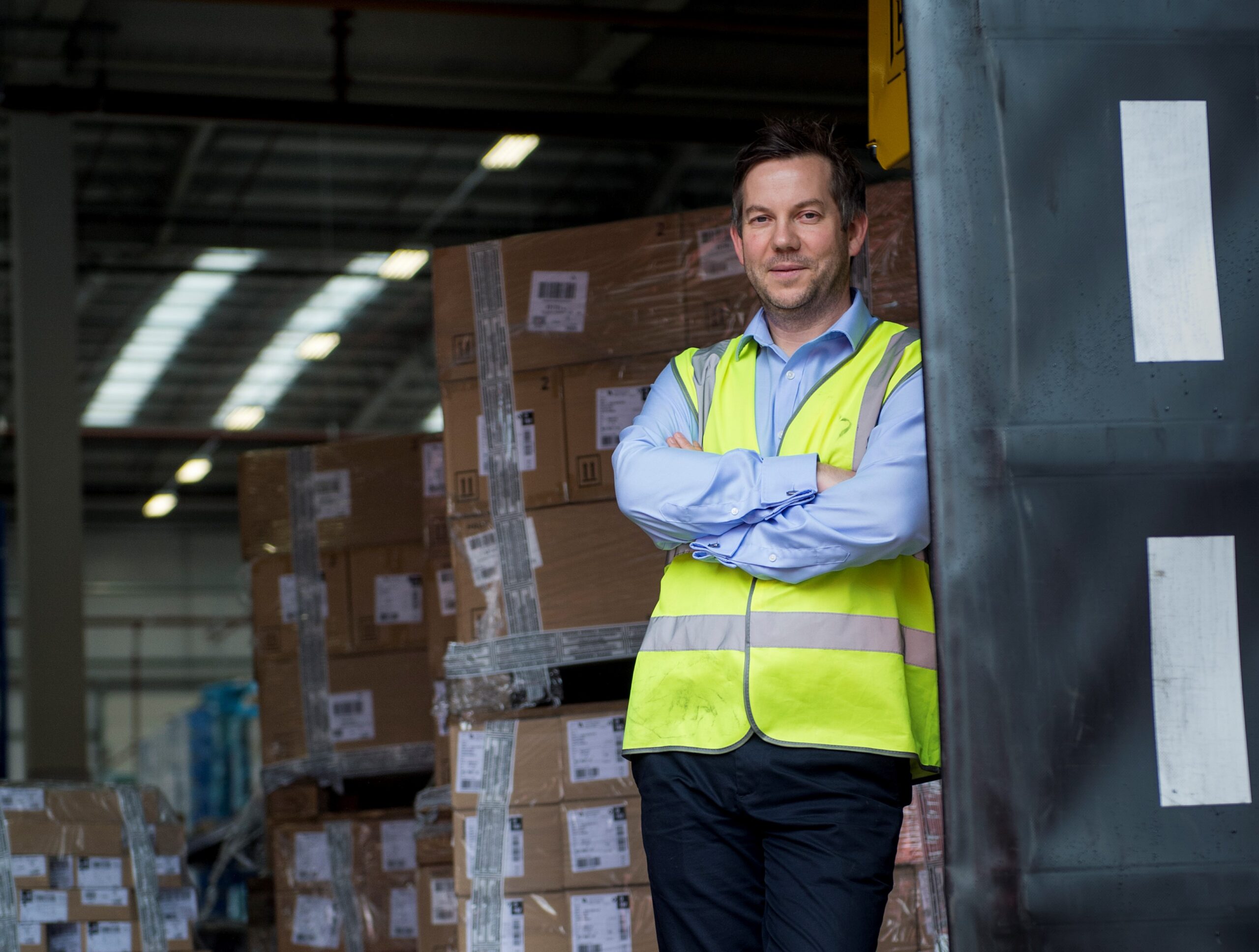Industry analyst, Juniper Research, recently published its global Connected Cars report, covering the commercial use of telematics and consumer use of cloud-based “infotainment” applications.
To compile the report, Juniper interviewed the Car Connectivity Consortium, Telefonica, Sierra Wireless, Vodafone, Trimble, KORE, Jasper Wireless, Harman and Here and profiled Deutsche Telecom, AT&T, China Mobile, China Unicom and NTT Docomo.
After speaking to these major players, Juniper Research predicts that there will be 269 million in-vehicle apps in use by 2018, just three and a half years from now.
This has the potential to make everything from an artic to a fork lift truck part of the Internet of Things (IoT).
While IoT has the potential to dramatically impact the logistics industry, there are so many players in the ecosystem that it will demand open standards and interoperability.
We can already see this drive towards standardisation with Microsoft joining the AllSeen Alliance, which aims to lead the development of connected cars and smart homes, with a focus on security. The AllSeen Alliance already includes electronics giants: LG, Sharp, Panasonic and Qualcomm and forty five other major players.
Once an IoT standard has been agreed, we anticipate that logistics organisations will invest heavily in advanced mobilisation of a broader set of assets and back-end data sets. Open, interoperable mobile application platforms will play an important role in enabling this mobilisation.
The emergence of in-vehicle apps, combined with smart devices and cloud technologies, offer the logistics industry an unprecedented opportunity to reduce costs and streamline business processes, simply by replacing paper forms with mobile forms.
During a typical picking, packing, palletisation and delivery process, many forms have to be completed, requiring employees to fill in numerous fields.
Paper-based data capture can lead to significant inaccuracies owing to inconsistencies across different employees, environmental damage to paper and human error in completing forms. This represents a cost to logistics firms, while also limiting the speed at which they can change processes to respond to industry changes or customer requirements.
The evolution of in-vehicle user interfaces that employ touch, gesture and voice recognition provides a powerful replacement for keyboard and written data entry. User-friendly drop down menus and auto-filling work-order information, such as address and delivery driver ID, can greatly increase the accuracy of data capture on the road. Smart device features such as barcode and signature capture, in-built cameras and GPS mapping, enhance information capture and accuracy, while eliminating the need for lengthy written descriptions, duplicated data requests, or manual entry of the location address.
Mobile and in-vehicle apps are inherently consumer-friendly and simple to use, which increases their user acceptance. App functions tend to be tailored to a specific activity and employ familiar interfaces, thereby virtually eliminating the training requirement. Mobile app functionality, such as caching and data syncing, offers the added benefit of making information available even when a driver or warehouse operative is offline. Once the device is back online, data can be automatically synced.
The cloud plays a pivotal role in connecting forms apps securely and seamlessly with internal business systems, in order to transfer data between in-vehicle apps, handheld devices and the backend system. When logistics organisations need to update app forms and workflows, this can be done from the cloud and pushed out to vehicles and hand-held devices. Compared with issuing new paper-forms, this offers logistics organisations the flexibility to rapidly adapt workflows in response to industry changes. Rather than having siloed solutions, logistics organisations can re-use backend integrations that have already been created for apps, so that the same data sources can be used by different areas of the business.
With the cloud acting as a point of storage and data management, a form that can be completed on a handheld device or in-vehicle screen, can transform business processes by eliminating process steps, improving data accuracy and enhancing intelligent data capture.
The features of smart devices, combined with the power of simple mobile forms apps, often present logistics firms with the quickest win in terms of rapid and high return on their mobile investment.
Juniper predicts that there will be 269 million in-vehicle apps in use by 2018. That scale of deployment can only be achieved in the next 40 months if organisations get more strategic about mobile app development and deployment.
Making the most of existing IT investment, Cloud-based mobile app platforms re-use existing back-end integration with databases, itineraries and inventory, with everything securely managed, updated and maintained from the cloud.
Using cloud-based mobile app platforms, logistics firms also have the opportunity to create mobile forms apps, without requiring any coding skills. These apps can capture barcodes, signatures, images, location, emails and delivery driver IDs, run on a wide variety of mobile devices and, provided that an open platform is selected, future in-vehicle consoles can be supported as part of IoT programmes. This development will really help logistics’ drive towards paperless processes.
References:
Juniper Research, “Connected Cars, Consumer & Commercial Telematics and Infotainment 2014- 2018,” Anthony Cox, 1st June 2014
http://www.juniperresearch.com/reports.php?id=743
Business Cloud News, “Juniper: In-vehicle app growth will see telcos and cloud service providers win out,” 2nd July 2014 http://www.businesscloudnews.com/2014/07/02/juniper-in-vehicle-app-growth-will-see-telcos-cloud-service-providers-win-out/?
utm_source=rss&utm_medium=rss&utm_campaign=juniper-in-vehicle-app-growth-will-see-telcos-cloud-service-providers-win-out
AllSeen Alliance https://allseenalliance.org/
FeedHenry, video demonstration of FeedHenry 3 Forms Builder – creates forms easily, using drag and drop, without requiring programming skills http://www2.feedhenry.com/results-video-how-to-drag-and-drop-apps-forms












